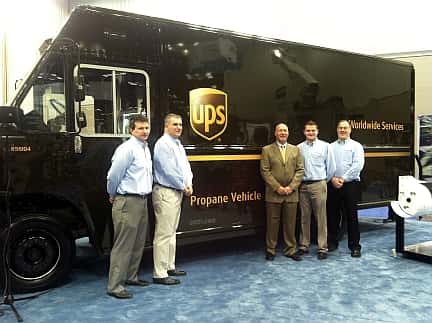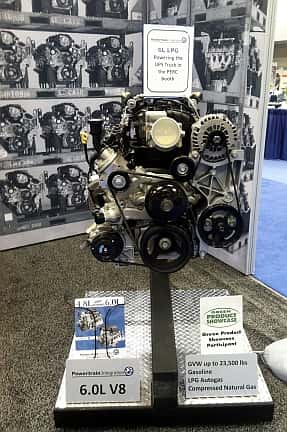 UPS is continuing its steady adoption of clean transportation technologies with the announcement this week that it plans to add 1,000 propane-powered delivery trucks to its U.S.-based fleet within the next year.
UPS is continuing its steady adoption of clean transportation technologies with the announcement this week that it plans to add 1,000 propane-powered delivery trucks to its U.S.-based fleet within the next year.
This new complement of autogas vehicles will join UPS’ existing North American propane-powered fleet – some 900 units that are in service in Canada.
The company, which unveiled the new autogas initiative during the NTEA’s Work Truck Show in Indianapolis, says the propane vehicles will go into service largely on rural package-delivery routes, starting with locations in Oklahoma and Louisiana.
Mike Casteel, UPS’ director of fleet procurement, tells NGT News that the company chose to begin the propane vehicle initiative in Oklahoma and Louisiana for two main reasons: both states offer compelling incentive programs related to alt-fuel vehicle deployments, and both contain delivery routes with above-average mileage in rural areas. These types of routes are particularly well-suited to take advantage of propane’s fuel-cost advantage over petroleum fuels, especially considering that the trucks running these sparse, long routes are larger than the typical UPS package-delivery vehicle.
Â
He notes that new propane-powered trucks will hit routes in other states in the coming months. The company will determine exactly where the trucks will be rolled out based largely on state incentives, route characteristics and fleet composition. Ultimately, UPS will execute multiple deployments of 20 to 25 vehicles per site, in most cases, in a number of locations.
The new trucks are CARB- and EPA-certified Freightliner Custom Chassis Corp. MT-45/55 Class 5/6 vehicles. Powertrain Integration’s customized GM 6.0-liter V8 engine is paired with a dedicated liquid-propane-injected system from CleanFuel USA. Each truck features 48 usable gallons of on-board propane storage, yielding approximately 200 miles of driving range.

In terms of refueling infrastructure, UPS intends to build about 50 behind-the-fence autogas stations at its own satellite facilities. The company is working on the refueling plans but has not yet announced equipment providers or propane suppliers.
Casteel anticipates that the first propane vehicles will be in service by mid-year, with the full deployment of 1,000 trucks pegged for mid-2015. The Propane Education & Research Council (PERC) has been assisting UPS with many aspects of the project – especially in gaining CARB and EPA certifications – for the last several months.
Photo courtesy of Powertrain Integration






